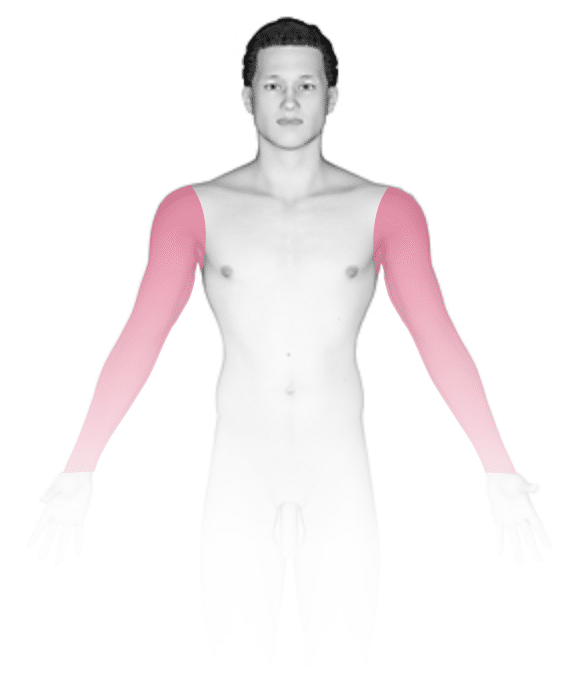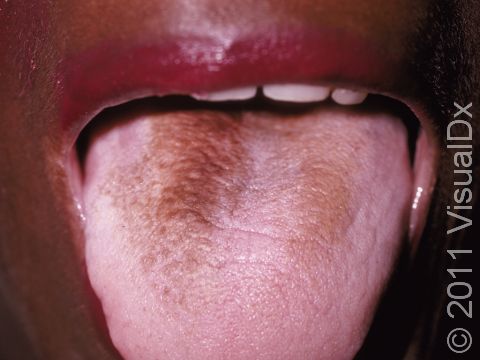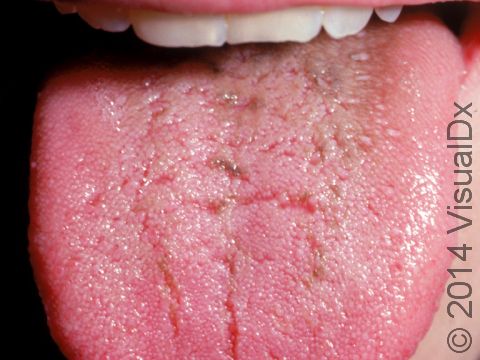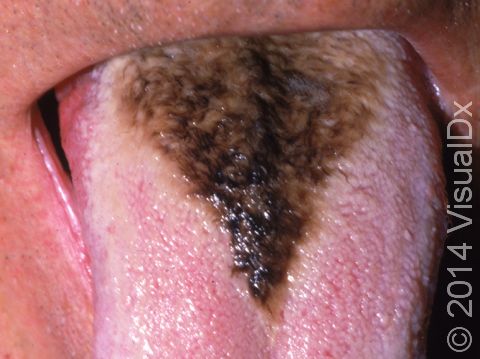Hairy Tongue
Hairy tongue, also known as black tongue, is a harmless condition involving the accumulation of keratin (the major protein found in hair, skin, and nails, as well as on the tongue) on the fingerlike projections (papillae) of the tongue’s surface. It results in a hair-like appearance on the top of the tongue, along with white, yellow, brown, or black discoloration. This condition may be caused by overgrowth of a bacteria or yeast. Anything that reduces the flow of saliva in the mouth, such as dehydration, illness, or not eating a normal diet (eg, decreased food intake or eating a soft diet for a prolonged period), can lead to the condition, which typically develops over a few weeks. Certain medications can also cause hairy tongue, such as antibiotics, antipsychotics, and anticholinergic agents. Other causes include smoking, alcohol use, continuous exposure to hot beverages, and exposure to radiation therapy.
Who's At Risk?
Hairy tongue can occur in anyone, but it is most common in people who are dehydrated, ill, or who are not eating a normal diet. People taking certain medications or with certain exposures may also be more susceptible.
Signs & Symptoms
Hairy tongue is most common on the top of the tongue’s surface (not underneath the tongue). The tongue may be yellow, brown, or black, with a coated, rough, or “hairy” look. You may notice a stale taste or smell in the mouth and a more sensitive gag reflex, but it is painless.
Self-Care Guidelines
- Gently brush the tongue with a toothbrush twice daily or use a tongue scraper. Then rinse the mouth with a dilute solution of hydrogen peroxide (1 part peroxide to 5 parts water) or mouthwash. Rinse the mouth with plain water.
- Maintain good oral hygiene with regular tooth brushing.
- Avoid smoking and chewing tobacco.
Treatments
The medical professional will want to confirm the diagnosis, ensure there is not another diagnosis present, and review your medication list.
Visit Urgency
If self-care measures are unsuccessful, seek medical advice.
Trusted Links
References
Bolognia J, Schaffer JV, Cerroni L. Dermatology. 4th ed. Philadelphia, PA: Elsevier; 2018.
James WD, Elston D, Treat JR, Rosenbach MA. Andrew’s Diseases of the Skin. 13th ed. Philadelphia, PA: Elsevier; 2019.
Kang S, Amagai M, Bruckner AL, et al. Fitzpatrick’s Dermatology. 9th ed. New York, NY: McGraw-Hill Education; 2019.
Last modified on November 16th, 2023 at 4:52 pm

Not sure what to look for?
Try our new Rash and Skin Condition Finder


